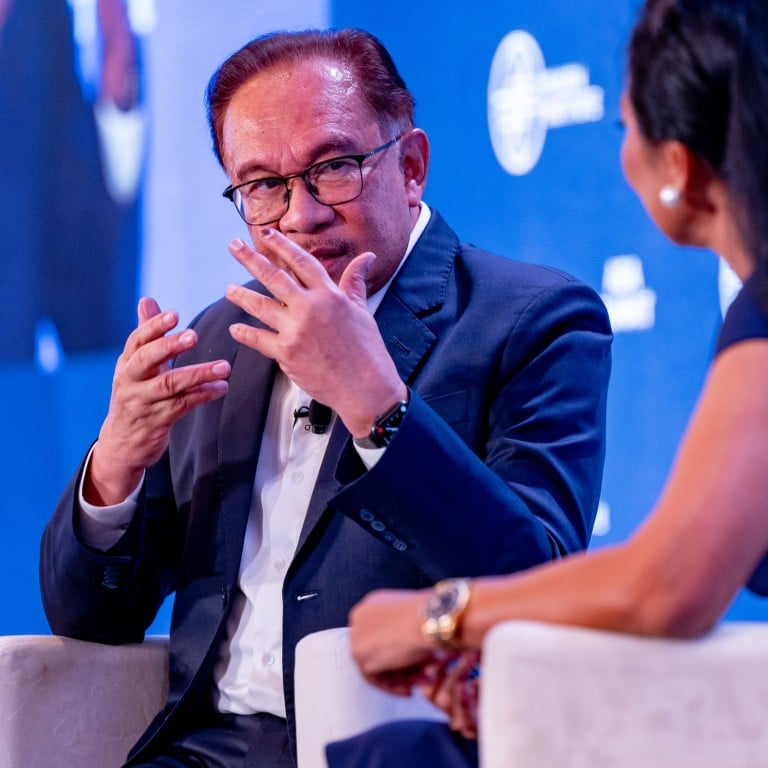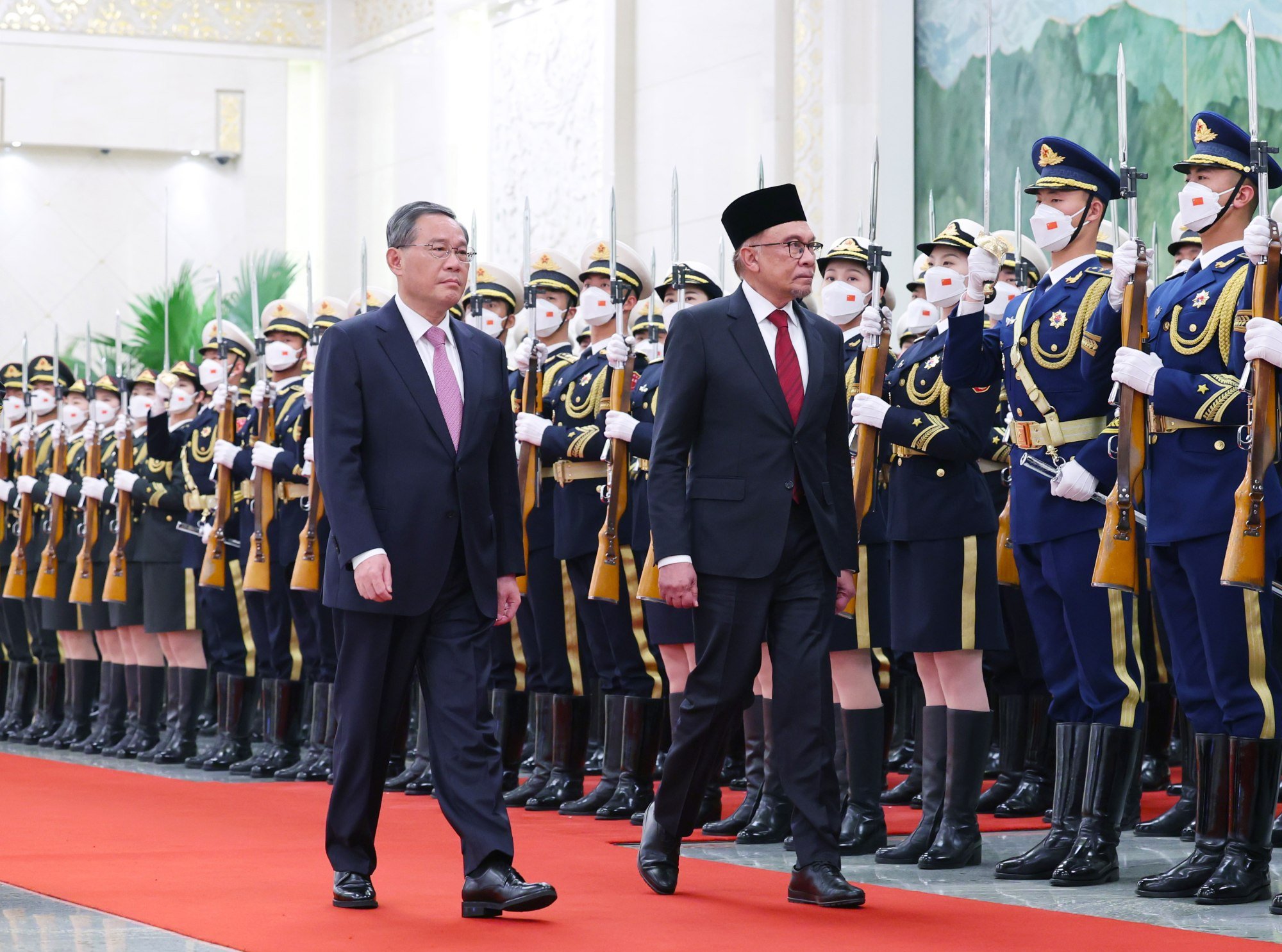
Malaysia’s Anwar vows no let-up on anti-corruption drive amid outcry over ally’s discharge
- The decision to drop corruption charges against Deputy PM Ahmad Zahid Hamidi sparked criticism that the move is a betrayal of Anwar’s reform agenda
- Anwar says corruption is ‘endemic’ but stresses that Malaysia’s anti-graft agency has not found a single corruption case linked to any government leader since November
Opposition politicians are planning a public rally on Saturday to protest against the decision.

Anwar said the decision was made solely by former attorney-general Idrus Harun, who he said had told him ahead of his retirement that there was sufficient evidence to disprove the charges levied against Ahmad Zahid.
“He said: ‘Sir, this is an issue of my conscience’, and he gave me the facts,” Anwar said during a plenary session at the Milken Institute’s 10th Asia Summit in Singapore.
“I said, ‘Can you support this?’ He said yes, with 11 facts to be adduced in court and for the judge to decide,” he said, adding that the charges were rushed by his predecessor and long-time rival, Mahathir Mohamad, after Ahmad Zahid refused to dissolve his former ruling Umno party and join Mahathir’s then-party Bersatu.
Ahmad Zahid was among a clutch of senior Umno leaders charged with corruption in the aftermath of the 2018 general election, which led to a historic change of government on the back of public anger over rising living costs and allegations of rampant corruption.
Malaysia’s Anwar loses coalition partner in protest at Ahmad Zahid walking free
But he stressed that Malaysia’s anti-graft agency had not found a single corruption case linked to any government leader since November, when Anwar became prime minister.
“That, to me, is important. Yes, there have been cases that happened in the past … the issue of corruption is endemic, systemic. If I want to take that up, it will involve so many others,” Anwar said.
“But what is important is that we are starting a fresh, new system. Yes, it is perception, and I don’t blame the cynics, because we inherited a corrupt system.”

Balancing ties with US, China
He said the fact that China and the US operated on distinctly different systems did not mean that countries needed to stop dealing with them if they faced any problems.
“I would want Malaysia to be closer to the United States, as much as we are very much close to China,” Anwar said, adding that he would meet China’s Premier Li Qiang in Nanning later this week, and attend the 2023 Apec meeting in Seattle at US President Joe Biden’s invitation in November.
“This idea that you either have to be with China or the United States … no,” Anwar said. “Why should we suffer and be told what to do? We must be fiercely independent, as independent nations.”
“I think the world needs Asean to … keep centrality as the thrust of its foreign policy to continue to have effective engagement with China and the United States,” Anwar said.

1MDB saga not over
Anwar said his administration would also continue to pursue US investment bank Goldman Sachs to renegotiate a new settlement over its role in 1MDB.
The bank had “not been forthcoming” when asked to renegotiate the settlement, said Anwar, adding that it should return “most” of the money from the 1MDB deal.
He said he had not set any timeline to renegotiate the settlement with Goldman Sachs, but stressed that the government was prepared to go all the way to recover the funds.
“You cannot shy away. You can’t. You can’t consider us some banana republic that you can squander and leave us alone,” Anwar said. “It is not my money, and I owe it to my people, the money has to be returned to the people for their education, their public health, for their basic amenities. You can’t, therefore, ignore this.”
Anwar had earlier said Malaysia could file lawsuits against the bank to recoup more funds, as a 2020 settlement of US$2.5 billion in cash and a guarantee on the return of US$1.4 billion in assets did not go far enough.

